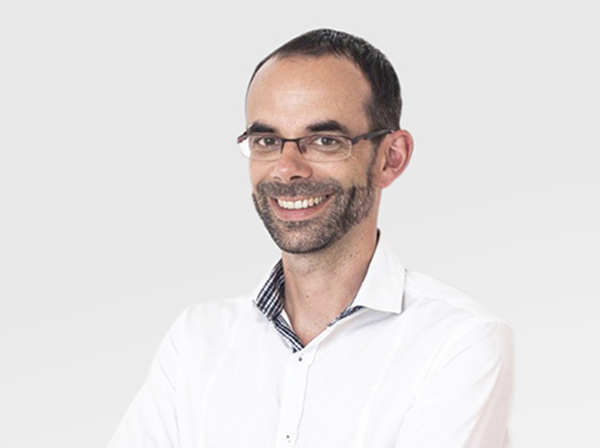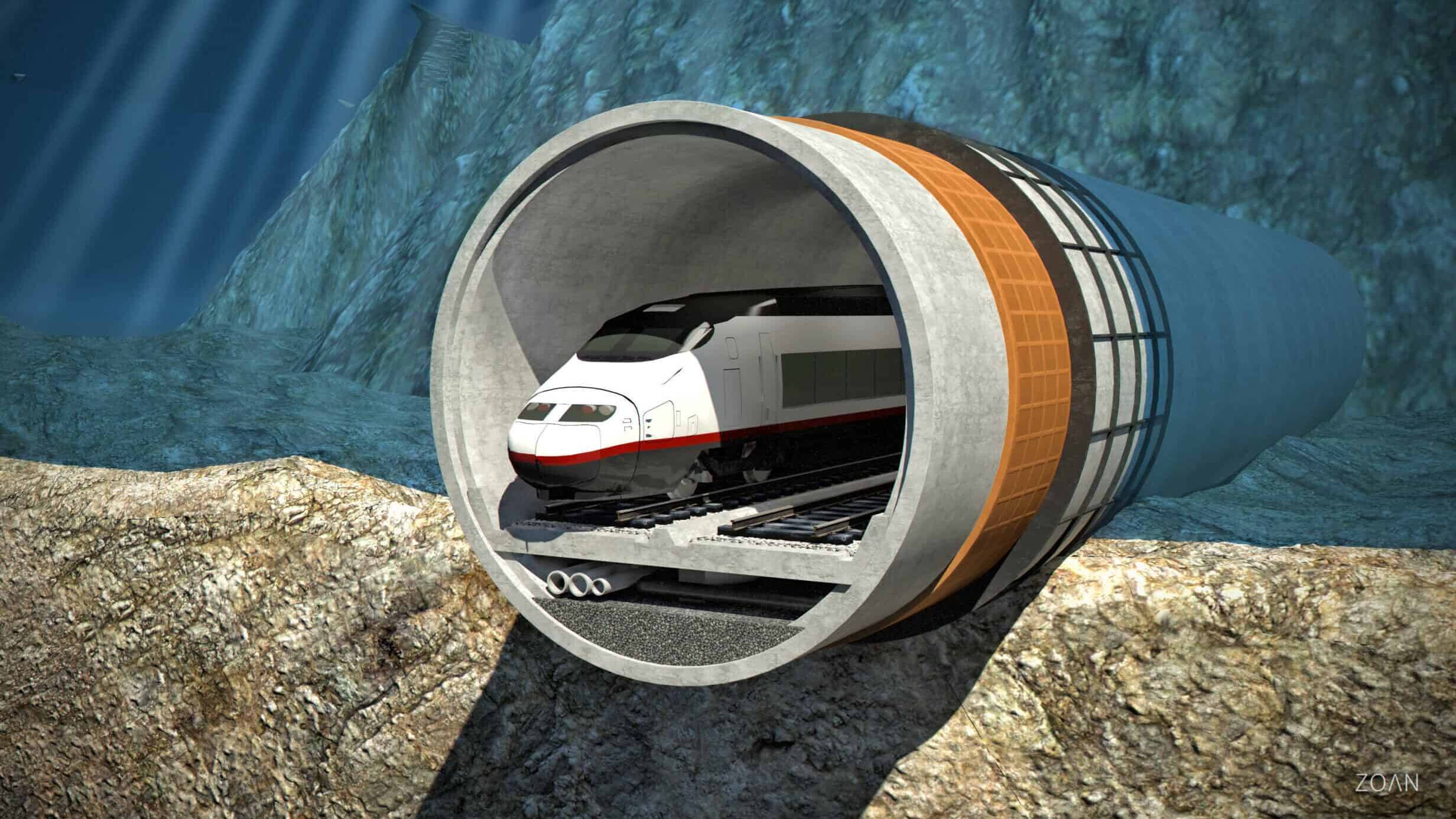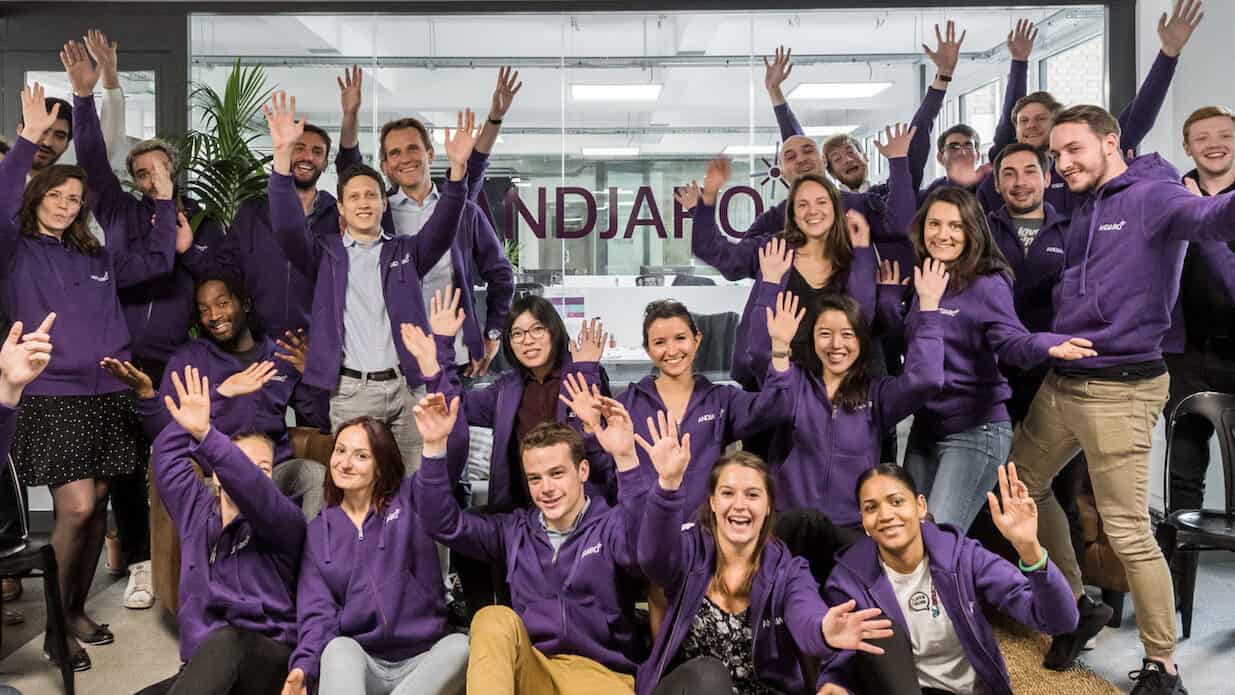After the major crisis that was Covid, the travel industry is up and running again. The Swiss travel tech startup Nezasa enables customization for complex trips and recently acquired Chilean startup TripYeah. In our interview, Nezasa’s CEO Manuel Hilty talks about managing a startup in times of crisis, and how to reduce friction while traveling.

Co-Founder and CEO, Nezasa
Manuel Hilty founded Nezasa together with Patrick Hammer and Andreas Fürer in 2013. Nezasa is the most sophisticated software solution for tour operators and travel retailers to automate the offering, customization and booking of tailor-made travel itineraries. Verve Ventures invested in Nezasa’s Series A in 2016. Manuel has a Ph.D. in Computer Science from ETH.
Where did you get the inspiration to found Nezasa?
My co-founders and I have a background in the software industry. Before founding Nezasa, I worked for a boutique consultancy called Acrea, which supports innovation and digitalization projects in different industries. Through this work, we got in contact with plenty of people in the travel industry and realized the potential a solution like Nezasa’s TripBuilder could have.
Nezasa changed its business model early on, why was that?
After building our core technology we started with a business-to-consumer business model and sold travel packages on our website. But we quickly realized that this wasn’t the right way. Our DNA is technology, not consumer marketing. Building a brand would have been much too capital-intensive. This is why we decided to pivot in 2015, and since then we have focused on a B2B business model. We hit a nerve because there is a huge demand for automation.
Indeed. With this new offering, Nezasa doubled its sales every year. But then, the pandemic hit. Travel was one of the most affected industries. What did this mean for Nezasa?
It was brutal. We were in a high growth phase and started 2020 with about 70 FTE. It quickly became clear that we needed to reduce headcount significantly to survive. That was the worst experience as an entrepreneur for me so far. Having to let almost half of the team go, including contractors. Nonetheless, we used the time we had during the pandemic to reflect and make the company more efficient. Before 2020, our sales included a lot of project work. We transitioned from this to a complete unified product that allowed us to become a true Software-as-a-Service company. In a way, we already did a lot of the homework, such as becoming more capital-efficient, that many startups are forced to do now two years ago.
As a CEO, you had to hold the company together in this difficult time. What have you learned during this crisis?
I wasn’t carrying this weight alone, we shared it as a management team. We realized how incredibly important communication is. You need to have a plan and you need to talk a lot about it, and explain over and over why it will work. Remember that this was a time when you also couldn’t meet face to face anymore, so it was even more important to communicate. We did countless all-hands meetings online, and I started the habit of meeting with people for virtual coffee catch-ups, always in different groups. As a CEO you talk with people, but it’s also important that they talk to each other. In 2021, business already started to take up again. We signed our biggest contract with TUI that year. That brought another challenge with it. All of a sudden, we had a very important customer with high expectations but we had a reduced headcount, which meant that there was a lot of pressure. But it was good to see that digitalization in the travel industry wasn’t stopping.
“Historically speaking the travel industry is very resilient.”
How has the pandemic affected the travel industry in general?
Historically speaking the travel industry is very resilient. Discovering new countries and cultures seems to be an innate desire of people, and that’s also why I’m so passionate about this sector. While the global financial crisis was just a hiccup for the industry, the pandemic was a real crisis. But in 2022 already, we have seen the sector bouncing back. But one development is here to stay, I think. Travelers have become very unpredictable, they do not book trips far in advance anymore. The swings in demand that result from this behavior mean that the travel industry needs to become agile, much faster and more flexible in the production and delivery of travel packages. This is good for us, it is a strong driver of digitalization.

Invest in Startups
As one of Europe’s most active venture capital investors, we grant qualified private investors access to top-tier European startups. With investments starting at EUR/CHF 10’000, you can build your own tailored portfolio over time and diversify across stages and sectors.
Let’s talk about this need a bit. How does Nezasa’s software increase automation in the travel industry, especially when booking multi-destination trips?
As an end client you know how difficult it is to book a trip with multiple destinations and get an overview of the dependencies between the different products of your travel itinerary. For the travel agent, who books these elements in different systems, the amount of work is almost the same. Our product TripBuilder brings intelligence into this process and helps the end-user or agent in planning a trip and finding cheaper, faster, and more sustainable routes. It gives recommendations on how a trip could be optimized. We address a very big market that is estimated at USD 500 billion annually, and since we can manage very complex itineraries, having 5-figures shopping baskets is not unheard of. With TripBuilder, we address medium to large travel agencies, and we have clients as far away as Australia.
Recently, Nezasa announced the acquisition of Chile-based travel tech startup TripYeah which optimizes complex flight routes. How did this come about?
I met the founder of TripYeah, Elias Musalem, a year ago at a conference in Fort Lauderdale. They had just launched their offering based on flights and wanted to talk about a partnership because we have a product that covers other elements of travel such as hotels etc. We talked again in spring, and realizing how well our products complement each other, decided on more than just a partnership.
That makes it sound a lot more trivial than it is. How does a startup buy another one?
They had an offer on the table from a big travel tech company that just wanted to get its hands on their algorithm. But the founders didn’t want to sell out, they were just getting started and wanted to accelerate their business.
Did money play a role?
I told them: “Look, I don’t have any spare money, but I have a vision.” We spoke about our common goals, and because there is an excellent fit, we also found a way to make it happen. Of course, we needed a lot of expert advice on all the topics related to the acquisition. Our board member Jan Reinhart has significant experience in startup M&A and provided us with valuable insights. The details of a Swiss-Chilean transaction and its tax implications weren’t trivial. But we found a good way to value the company, and structure a share deal based on performance metrics. For the founders of TripYeah it’s not an exit. Their CEO and his co-founders will have an important role in our management team.
How exactly are your products complementary? Isn’t one more product to sell just adding unnecessary complexity for a small organization?
Not at all, it will be a powerful tool to reach new clients. Going forward, we’ll distribute TripYeah’s product as an entry-level product. It is simple enough to be sold in a self-service approach. With it, we can establish a customer relationship and will know at what point a client is ready to upgrade to our core product TripBuilder, which is powerful and able to handle a high level of complexity. Through the acquisition, we gain a foothold in Latin America, where we weren’t present before.
You spoke about a vision that was apparently convincing enough for the founders of a travel tech startup. What does this vision entail?
What Nezasa offers today is mass customization and the capabilities to automate the planning, booking and post-booking phases. The next capability we’re working on is to improve our suggestions through machine learning and be able to offer journeys that are as valuable as initially planned when one element of it is no longer available. Friction is a big unsolved problem in travel. Think of the chaos at airports this year. There are endless sources of friction, man-made such as strikes or natural causes that prohibit you from traveling as planned.
According to estimates, about one in twenty multi-day trips is affected by friction. That might not sound like a lot, but if you ever spend a day of your holiday trying to reorganize a trip, then you realize how valuable it will be when you’re able to provide good alternatives in-destination on the spot. Imagine, no matter why or what mode of transport broke down, having options A, B and C delivered to your mobile, and you just need to choose. This will become a game-changer. It will also allow us to think even further. If we’re able to manage friction on every single trip, we can also put a probability and a price tag on the cost of doing so on it, not only after it happened, but at the moment you book it. This, in turn, means that for the first time in history, insurance companies will be able to price their travel insurance products adequately. It will probably also mean that companies that aren’t ready to underwrite such risks today might do so in the future.
Written by
WITH US, YOU CANCO-INVEST IN DEEP TECH STARTUPS

Verve's investor network
With annual investments of EUR 60-70 mio, we belong to the top 10% most active startup investors in Europe. We therefore get you into competitive financing rounds alongside other world-class venture capital funds.
We empower you to build your individual portfolio.
More News
19.09.2022
“Europe needs to come together”
Finnish entrepreneur Kustaa Valtonen invested in the first batch of Startup Sauna companies more than a decade ago. Now, he plans to build the world’s longest railway tunnel together with the Mighty Eagle. Europe could be the global startup powerhouse if there were more cross-border collaboration and if politicians got their act together, he says in this interview.
15.06.2020
“Our goal is to become a global leader”
Temporary staffing firms have grown big by providing a quick fix to absences in a workforce. Andjaro helps large companies tap their internal resources instead and save a lot of money. In this interview, Andjaro’s CEO Quentin Guilluy explains how this works.
06.03.2020
“Travel destinations will become the stars of tourism“
How is technology reshaping the travel industry? If there is one person that can answer this question with authority, it's Roland Zeller. He built an online travel firm before the internet was cool, sold it successfully and became an influential business angel in travel tech. He was one of the first investors in the unicorn GetYourGuide. In this interview, the talks about the past and the future of the travel industry, and the reason why he believes CheckYeti, the outdoor activity platform, is on to something.
Startups,Innovation andVenture Capital
Sign up to receive our weekly newsletter and learn about investing in technologies that are changing the world.




